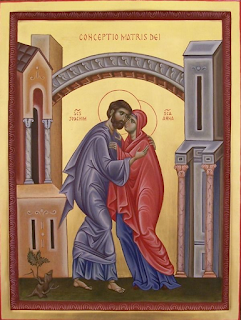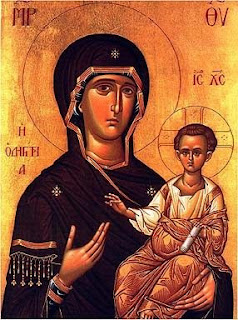The past couple days, I have had trauma triggered...as mentioned before, while I may have been more political in the past, I've become less and less political lately. And I didn't really become interested in political affairs in general until 2016 to begin with. But in 2016, I had a long-distance relationship with a woman in England. She got involved in politically campaigning for the "Bremain" position. When Jo Cox was brutally and senselessly murdered, I remembered just being in fear for her safety. She's my ex-girlfriend now but if you have unconditional love for someone, that love never fades away entirely and that fear at the time is still there. I had wanted her out of politics...not to mention, the campaign was exhausting to her and severed time to actually communicate with her. It's the feeling that someone you love may not be safe. For a lot of us, we may look at the assassination or the death of a celebrity as a one-off blip on the radar, but for others it hits close to home.
I had been reflecting on this a bit and noticed that progressive blogger Fred Clark wrote an article about what he learned from the murder of Jo Cox. I decided to read it thinking he had some reflections to make about how both of these events felt personal to him, but I gave up hope upon reading through the article. It's entirely a politicization of two human lives that were wrongly and senselessly taken from us now being used as political football. Though we tend to be simplified into right and left in this world, people are a lot more complicated, and the world is a lot more complicated, to define someone as being on a linear model. I think I might mention that when I end up writing a different reflection that's non-political next week. But Fred Clark seems to see the lack of rallying toward "Bremain" in the end as a reflection of non-empathy of the right and his overall understanding of human nature is completely lacking.
It's not like we go from shedding the stain of original sin by becoming "right-wing" or "left-wing". We are subjected to the tyranny of the Devil due to the sin of our first parents and can only be set free by Christ. A true and genuine encounter with Truth and with Love. Being a member of an earthly political party does not free us because Christ's Kingdom is not of this world (John 18:36). Adopting someone's politics does not indicate how empathetic we are toward someone either. Political assassinations didn't originate back in 2016, they've been a thing for quite a while and it doesn't matter what the earthly group is, as long as people are subjected to the tyranny of the Devil, some will confuse that tyranny as freedom, embrace it, and act out on it. Both the murderers of Jo Cox and Charlie Kirk acted out on that.
Another thing I should note is that a lot of people seem to think social media is a good indicator of where the world's at. Social media is nothing but a lot of anger amplified. It tends to be anger that gets likes, that gets praised, and that gets one's voice heard. It's awful, but it's true. As such, the wicked in all parties get amplified and we tend to think the other is out to get us. Common sense doesn't exist anymore. Moderation doesn't exist anymore. If someone doesn't support COVID lockdowns, it's not because they find the loss of freedom and interpersonal connection too great a price to pay for an unknown number of lives, if any, to save. It must be because they want everyone to die or they deny the reality of the virus. And so people are villainized for having entirely human concerns.
Empathy is not the same as sympathy and people who emphasize the need to show empathy often do not show any empathy whatsoever. Empathy is not about discarding rational thought and simply just agreeing with someone's politics. I never really paid any attention to Charlie Kirk to be honest and never knew Jo Cox. But the horror of losing a father of two kids or a mother of two kids, that's unfathomable. I'm fine not accepting and seeing eye-to-eye with these people on everything. That doesn't mean I lack empathy. Empathy is the ability to understand the sufferings of another from an outward position, namely that of not having the experience. Compassion is partaking in those sufferings and sympathy is having concern for another experiencing suffering. While I have not shared the experience of losing someone close to me due to political violence, I certainly shared the fear of losing someone I loved to political violence. Jo Cox was doing something similar to Charlie Kirk when she was murdered. She was going to hear from her constituents. Charlie Kirk, even if you didn't agree with his politics, introduced to academia methods of discourse and ways to build up stronger arguments for and against particular positions. I think that's important to remember. He was murdered trying to get kids of all political positions involved in a discussion.
Empathy does not mean I have to agree with you. Empathy is about sharing in another's emotional experience from an outward position. Empathy isn't something political. It's something human. It's something that flows from the image of God. Empathy is an act of love. It does not mean I have to share your beliefs if they are inconsistent with the image of God. Empathy does not discard rationality. I don't know if this is something that neurotypicals just don't get or if they just skirt over and don't have empathy in general - which is something odd because it is usually neurodivergents who are accused of lacking empathy. Empathy actually demands rationality in order to process and to provide necessary help. I grieve for Brendan Cox and I grieve for Erika Kirk. I grieve for them because we are one with the human race and two humans were brutally and senselessly murdered by people who hated their spouses' politics. That should not happen. While emotionally driven people would discard their viewpoints and use this to adopt to their views, that is not the same thing as empathy. That is conversion. My opinion is that I should only convert to a person's viewpoints if I believe them.
Political violence is horror and I am sorry for people like Fred Clark who cannot empathize with the brokenness of the human race and feel a need to score political talking points for their team. That goes back to what I talked about yesterday with our desire to dominate and displace God. I also am sorry for people who think the murder of Charlie Kirk should be used to have people come over to their side as if the "other guys" somehow plotted it. The rhetoric on both sides needs to calm down. While the neo-conservative media tends to dominate the discussion and tends to stoke the fire more, nobody ordered that Brexiteer to brutally murder Jo Cox and nobody ordered a sniper to fire at Charlie Kirk. These people made their own decisions and gave themselves over to a cult of demons.
















